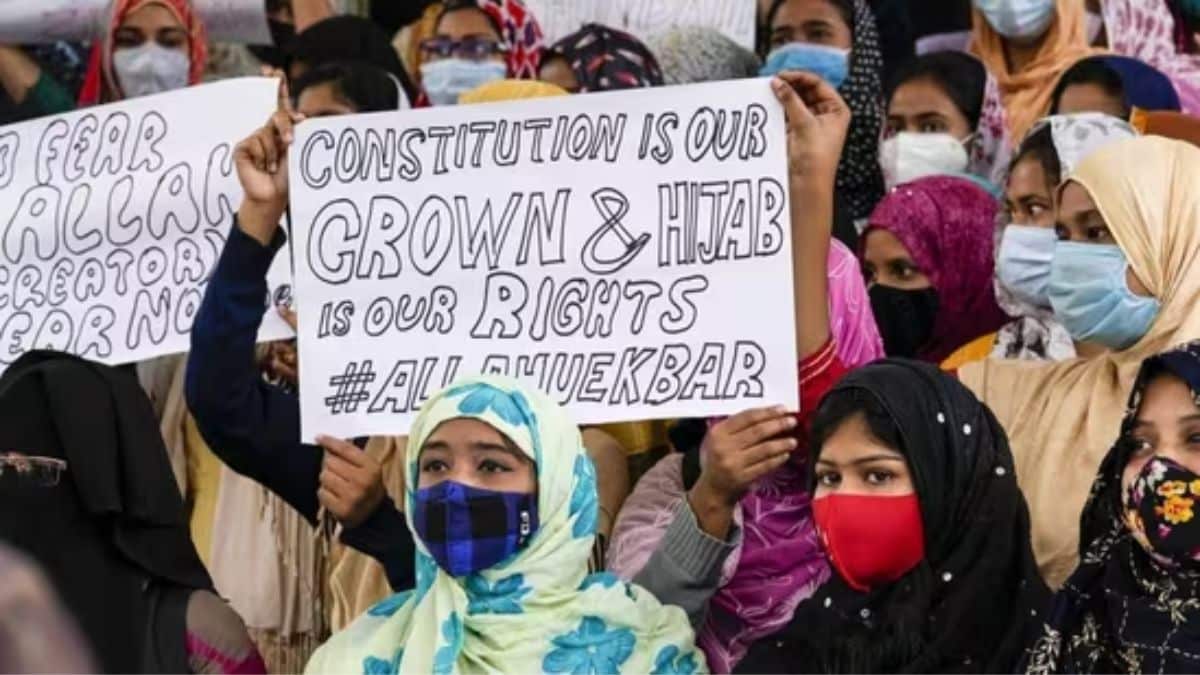On August 9, the Supreme Court issued a stay on the instruction imposed by NG Acharya & DK Marathe College in Mumbai, which prohibited students from wearing hijabs, caps, and badges on campus. This decision came during the Court’s hearing of a petition filed by Muslim women students challenging the Bombay High Court’s earlier judgment that upheld the college’s dress code policy.
The petitioners argued that the college’s ban infringes upon their fundamental rights, including freedom of religion and personal expression. During the hearing, the bench, consisting of Justices Sanjiv Khanna and Sanjay Kumar, expressed surprise and concern over the college’s decision. Justice Khanna questioned the rationale behind the ban, asking, “What is this? Don’t impose such a rule… what is this? Don’t reveal religion?” He emphasized that the rule seemed to disregard the importance of allowing students to express their religious identity.
Justice Kumar added to the critique by highlighting the arbitrariness of the policy. He queried, “Will their names not reveal religion? Will you ask them to be identified by numbers?” He further challenged the logic of the rule by asking if it would also apply to other religious symbols, like a tilak, suggesting that such instructions could be perceived as discriminatory.
Senior Advocate Madhavi Divan, representing the college, argued that the dress code was implemented to maintain uniformity and avoid religious identification. However, Justice Kumar noted that the college had operated without such restrictions since its establishment in 2008, questioning the sudden imposition of the dress code. He remarked, “It’s unfortunate that you come up with such instructions after so many years.”
The Court also agreed that face-covering veils like nakabs and burkhas could be restricted in classrooms for practical reasons but maintained that the broader ban on hijabs and other attire was problematic. The Supreme Court’s interim order allows the college to continue operations but with the instruction that the hijab ban should not be enforced until the ITAT appeal is resolved.
The Bombay High Court had previously dismissed the students’ petitions, arguing that the dress code aimed to ensure academic focus and discipline by preventing the display of religious symbols.
The Supreme Court has directed the college to allow students to wear hijabs while ensuring that the stay order is not misused. The case has been scheduled for further review, with a notice issued for November 18.

